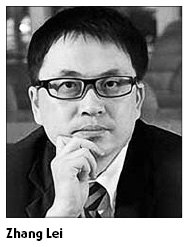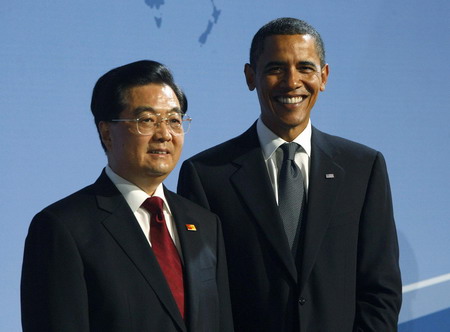Society
- Details
- By David Cao
- Hits: 814
China will set a new record for the world's highest airport with an airport planned at an altitude of 4,436 meters, the regional civil aviation director announced Tuesday.
Xu Bo, director of the Tibetan Branch of the China Civil Aviation Administration, said the airport, planned for Nagqu Prefecture, would be 102 meters higher than Bamda Airport in Tibet's Qamdo Prefecture, which has been the world's highest airport since its completion in 1994.
Xu Jian, director of the Nagqu Committee of Development and Reform, said construction of the airport had been included in the Tibet's development plan. The committee was working on site selection for the airport.
"The airport construction is planned for 2011 with a construction period of three years. It is expected to cost 1.8 billion yuan (263 million U.S. dollars) and cover an area of 233 to 266 hectares," he said.
Read more: World's highest-altitude airport planned on Tibet
- Details
- By David Cao
- Hits: 1149
 A Chinese graduate's record-setting $8,888,888 donation to his school at Yale University has stirred wide debate at home. While some say it's up to Zhang Lei to do as he likes, others question why he didn't donate to his alma mater in Beijing.
A Chinese graduate's record-setting $8,888,888 donation to his school at Yale University has stirred wide debate at home. While some say it's up to Zhang Lei to do as he likes, others question why he didn't donate to his alma mater in Beijing.
Yale President Richard Levin and School of Management (SOM) Dean Sharon M. Oster were in Beijing last week with Zhang when he announced his donation. They were taking part in a panel discussion called "Investing in the Middle Kingdom".
Levin said: "This truly extraordinary and auspicious gift reflects the deep commitment to Yale that Lei Zhang shares with so many fellow graduates of the School of Management. Lei's generosity also represents a significant step toward the realization of the SOM's new campus."
The donation will primarily help build the new SOM campus, while a portion will provide scholarship support for the International Relations Program at Yale's new Jackson Institute of Global Affairs, as well as fund a variety of China-related activities at the university.
- Details
- By David Cao
- Hits: 779

China greeted the new year with a promising economy, improving people's livelihood and a stable society, a hard earned achievement in the face of the worst global economic depression since the World War II.
On the first day of 2010, Chinese President Hu Jintao paid a visit to a small village in northern Hebei Province.
He went there not only to convey New Year greetings to common people, but also to investigate how to sustain stable and relatively fast economic growth after China survived the impact of the crisis that struck even the world's most powerful economies.
Under a leadership with determination and foresight and with joint efforts of the nation, the country's economy has withstood the toughest test in this century.
Be Prepared for Danger, Act Quickly
China has been prepared for possible dangers even at the most peaceful moment.
On June 13, 2008, Hu told a meeting of senior leaders of the central authorities and senior officials of central and local governments that the country should fully understand the problems and challenges it would face and prepare for possible difficulties.
At that time, the world economy was shadowed by the deepening subprime lending crisis in the United States.
In September 2008, following the filing for bankruptcy protection by Lehman Brothers, the fourth largest investment bank in the US with a history of 158 years, the financial crisis began to spread quickly across the world.
Closely related with the developed economies through its high reliance on foreign trade, the Chinese economy also felt the impact from the crisis.
Export growth slowed down, some factories were closed and workers went home as fewer orders came.
The central government responded with preferential duty policies, easing restrictions over bank loans, lowering transaction tax of real estates and increasing credits for small and medium-sized enterprises.
The central authorities established a special team to cope with the crisis.
- Details
- By David Cao
- Hits: 722
143 workers have been found to have excessive mercury in their bodies following a potential leak at a factory, china.com.cn reported today.
Nine people are suspected to have mercury poisoning and one in four staff tested positive for high levels of the substance at Foshan Electrical and Lighting (FELCO), a cash cow manufacturer of lighting products in Guangdong province, China.
The company has been offering high dividends for the past 16 years, but had reportedly fallen short in investments in production lines, production security and occupational disease prevention.
A liquid mercury production line is believed to be the cause of the scandal.
- Details
- By David Cao
- Hits: 778
Chinese Writers Association (CWA) said on Sunday it had received an apology from Google in the form of a written document.
Google admitted in the document which was forwarded to the CWA on Saturday that it had scanned books under Chinese copyright for its online library.
The act had caused dissatisfaction among Chinese writers, it said.
Google said through the recent talks it realized its communication with the Chinese writers was not good enough and would apologize for it.
Chinese books were an integral part of its book search service and would like to settle the dispute with Chinese writers through its negotiations with the China Written Works Copyright Society (CWWCS), the search engine said in the document,Google also promised not to scan the books without authorization from Chinese writers.
More Articles …
Page 175 of 255